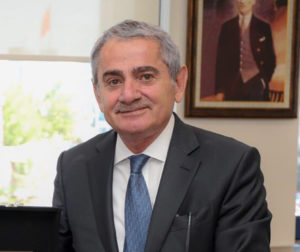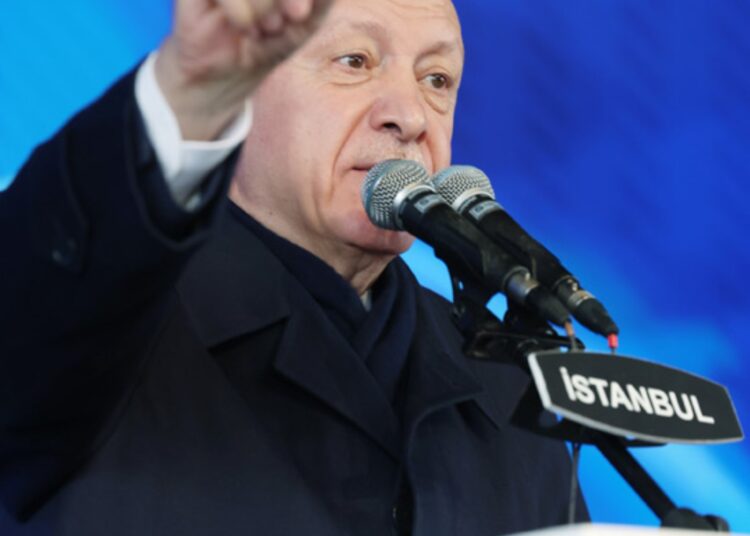Abdullah Bozkurt/Stockholm
The expenditure in a secret fund that is allocated for the personal use of the Turkish president to pay for covert intelligence operations nearly doubled last year, according to data provided by the Ministry of Finance.
The discretionary fund, a line item under Confidential Service Spending (Gizli Hizmet Giderleri, popularly known örtülü ödenek in Turkish) in the government’s central budget, was recorded at 6.5 billion Turkish lira at the end of 2023, representing an 86 percent increase from the previous year, when it was 3.5 billion lira.
The whopping rise in the spending of the discretionary fund is yet another indication that the office of President Recep Tayyip Erdogan has increasingly relied on its own intelligence activities in Turkey and abroad to sustain its repressive regime. The funds are separate from the money already earmarked for Turkey’s five major intelligence services for collecting information, espionage and spying activities.
Details about how the presidential discretionary fund was spent have never been made pubic, and its accounting is only known to few select people working in Erdogan’s office. All paperwork including invoices for such spending is destroyed after a quick audit by this group, which reports to President Erdogan. The rules governing the funds, the methods of allocating them and their recipients are also determined by the president.
It is a crime to reveal how the discretionary funds are spent, and the president can file a criminal complaint against anyone who makes this information public.

For years, Maksut Serim, who is now a chief advisor to the Turkish president, managed the discretionary fund at the pleasure of Erdogan. Serim, a neo-Ottomanist bureaucrat who wants to revive the Ottoman Empire, has had a relationship with Erdogan since the 1990s. Serim, who was branch manager of state lender Vakıfbank in Istanbul’s Valide Sultan district, helped Erdogan, who was mayor of the city at the time, with financial irregularities.
Serim was removed from his position by the bank’s management in 1997, when an investigation revealed that he had submitted a forged diploma with his employment application. However, when Erdogan came to power in November 2002 with his newly launched Justice and Development Party (AKP) as a single party government, he brought Serim into the government and appointed him to lead the Prime Ministry’s special discretionary fund.
Serim also helped secure his son Yasin Ekrem Serim the position of deputy foreign minister in October 2022. Yasin and his brother Halil İbrahim Serim were partners with Halil Falyalı, a drug trafficker and mafia figure who was killed in September 2022 in the breakaway Turkish Republic of Northern Cyprus (KKTC), a self-proclaimed state on the Turkish side of Cyprus that is under the control of Turkey.
The two brothers held 10 percent of the shares in a company called Northern Associates Trading Limited, established on December 22, 2020 in the KKTC, while Falyalı owned the remaining 90 percent.


Maksut Serim
The fundamentals of the discretionary fund are outlined in Law 5018, Article 24. Accordingly, a president is provided with an allocation that cannot exceed 0.05 percent of total government budget, to be used for financing covert defense activities for the protection of state interests, covert intelligence operations and those actions that serve the country’s dignity, reputation, security and interest in social, political and cultural fields.
It was revealed in the past that the fund was used for financing overseas operations, arming and supporting jihadist and Islamist groups, purchasing weapons that were used in assassinations, recruiting far-right figures from the Grey Wolves network and supporting paramilitary groups such as the SADAT organization.
The discretionary fund has also been used by a special presidential intelligence section that was quietly established in President Erdogan’s office after a 2017 referendum that replaced the parliamentary system of governance in Turkey with an executive presidency.
The section, which operates under the Presidential Security Affairs General Directorate (Cumhurbaşkanlığı Güvenlik İşleri Genel Müdürlüğü), has access to the databases of all intelligence services, including the National Intelligence Organization (MIT), the police and gendarmerie intelligence units, the General Staff Intelligence Directorate and the Foreign Ministry Security and Research Directorate, also known as its spy section (Araştırma ve Güvenlik İşleri Genel Müdürlüğü in Turkish).
The presidential intelligence section also operates several communications bases in Turkey to wiretap and monitor critics and opponents of President Erdogan without any judicial approval. It also leaks some private and confidential data to pro-government media outlets from time to time to undermine the opposition figures and defame critics.

The unit is run by Yusuf Karaloğlu (44), head of the Presidential Security Affairs General Directorate. He was the head of Strategy Development Directorate before he was appointed to lead the Security Affairs Directorate on August 10, 2018. Erdogan reappointed him to the same position on June 9, 2023. Hailing from Rize, the same province as the Turkish president, Karaloğlu is a trusted loyalist for Erdogan.
Karaloğlu’a portfolio includes governance of the territory under the control of the Turkish army in the north of Syria; oversees front NGOs that were established to mobilize the masses in times of need under Erdogan’s directives; and coordinates security matters with other government agencies as well as with the police, military and intelligence services.
During his two-decade rule, Erdogan has turned Turkey into an intelligence state, undermined transparency and accountability, removed checks and balances on his rule and misdirected taxpayer’s money into financing clandestine operations to sustain his repressive regime. Funding for covert operations beyond Turkish borders was also increased to help Erdogan gain leverage his government’s foreign relations.















